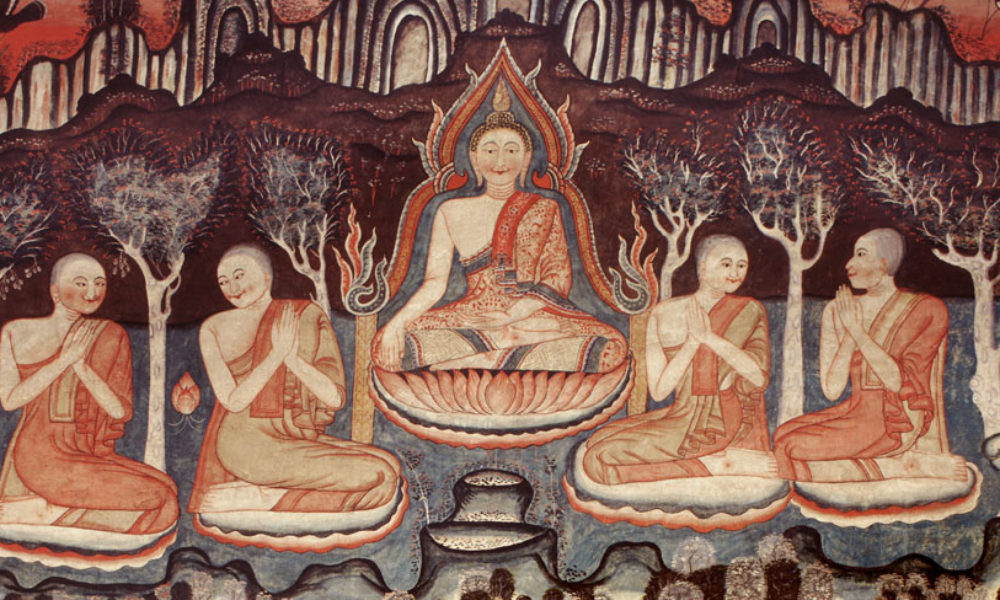The Fifth Precept, often translated as “to avoid taking intoxicants,” is a cornerstone of Buddhist ethics.
However, interpretations of this precept vary between different Buddhist traditions, leading to nuanced perspectives on behaviors such as drinking alcohol, smoking, and consuming animal products.
Understanding the Fifth Precept
The Fifth Precept encompasses the principle of abstaining from intoxicants, but its interpretation differs significantly across Buddhist traditions.
Theravada Buddhism
In Theravada Buddhism, the interpretation of the Fifth Precept is stringent. According to Bhikkhu Bodhi, an eminent American Theravada Buddhist monk, violating the precept entails specific criteria: the presence of an intoxicant, the intention to consume it, the act of ingestion, and the actual consumption. Consequently, Theravada Buddhism unequivocally prohibits the consumption of alcohol.
Mahayana Buddhism
In Mahayana Buddhism, the perspective on the Fifth Precept varies. The Brahma Net Sutra, a significant Mahayana text, categorizes drinking liquor as a “minor” offense, while emphasizing that selling alcohol is a major transgression. This distinction reflects the Mahayana emphasis on the interconnectedness of all beings, recognizing the harm caused by the distribution of intoxicants.
Alcohol Consumption in Buddhist Ethics
Alcohol consumption poses ethical dilemmas within the Buddhist framework, impacting individual practitioners and broader communities.
Theravada Perspective
For Theravada Buddhists, consuming alcohol is a clear violation of the Fifth Precept. The inherent intoxicating nature of alcohol disrupts mindfulness and undermines the path to enlightenment.
Mahayana Perspective
In Mahayana Buddhism, while drinking alcohol may be considered a minor offense, its sale is deemed a grave breach of ethical conduct. This distinction underscores the Mahayana commitment to compassion and the welfare of others.
Smoking: Attachment, Addiction, and Ethical Considerations
Smoking presents a complex ethical issue within Buddhism, intertwining notions of attachment, addiction, and harm to oneself and others.
Attachment and Addiction
Buddhist teachings emphasize the dangers of attachment and craving, traits exemplified in smoking behavior. The urge to smoke, coupled with dependence, signifies a deviation from the path to liberation.
Ethical Reflection
While smoking may not explicitly violate the Fifth Precept for most Buddhists, its detrimental effects on physical health and mental well-being warrant ethical reflection. The act of smoking not only harms the individual but also endangers others through second-hand smoke, highlighting the interconnectedness of all sentient beings.
Consumption of Animal Products: Moral Implications
The consumption of animal products raises moral questions within Buddhist ethics, particularly concerning compassion and non-harm.
Ethical Considerations
Buddhist teachings emphasize compassion for all sentient beings, advocating for practices that minimize harm. The consumption of animal products, which involves the exploitation and killing of animals, conflicts with these principles.
Ahimsa and Dietary Choices
Ahimsa, the principle of non-violence, extends to dietary choices in Buddhism. Many practitioners choose vegetarian or vegan diets to align with this principle, avoiding the harm caused by animal agriculture.
Conclusion
In Buddhism, ethical conduct is inseparable from spiritual practice, guiding adherents on the path towards enlightenment. The Fifth Precept, with its injunction against intoxicants, encompasses a range of behaviors, from alcohol consumption to smoking and the consumption of animal products. While interpretations may vary across traditions, the underlying principles of compassion, non-harm, and mindfulness inform ethical decision-making in all aspects of life. By reflecting on these principles and their applications, Buddhists strive to cultivate virtue and alleviate suffering in the world.




